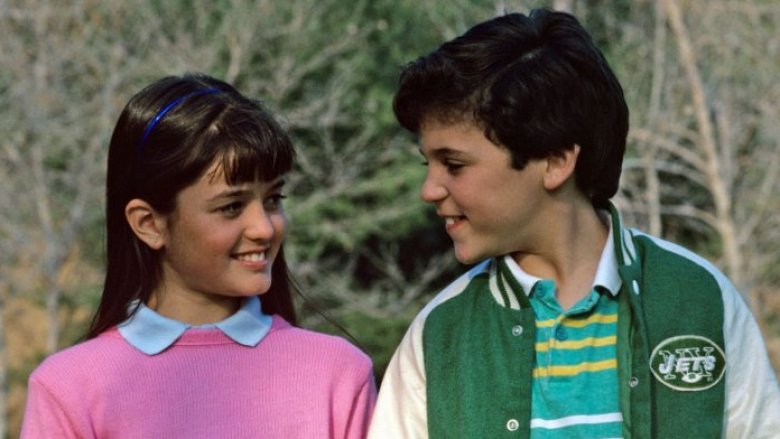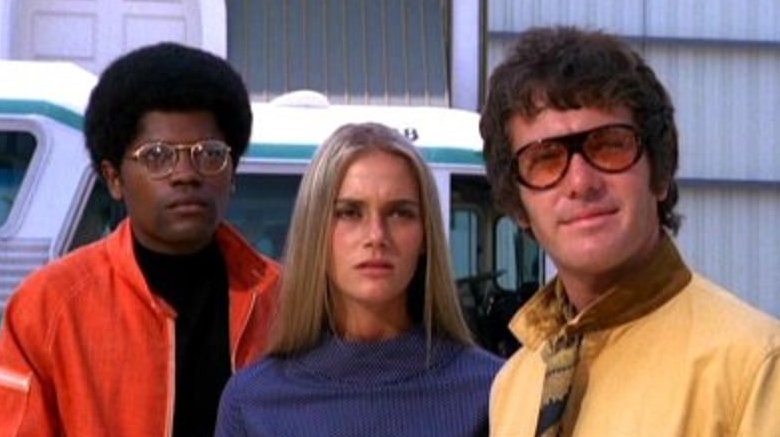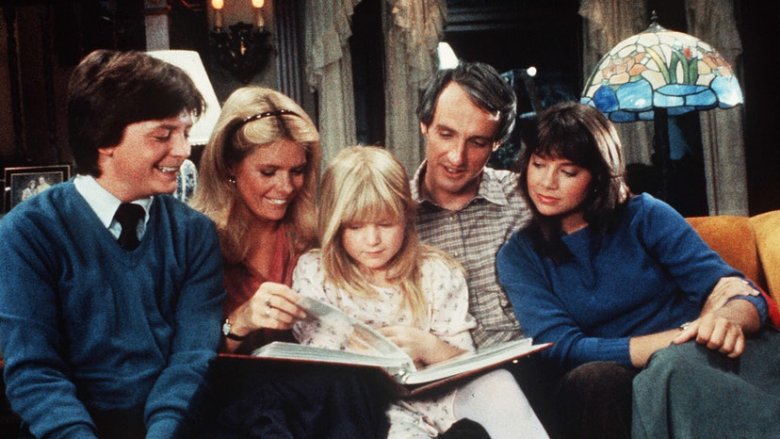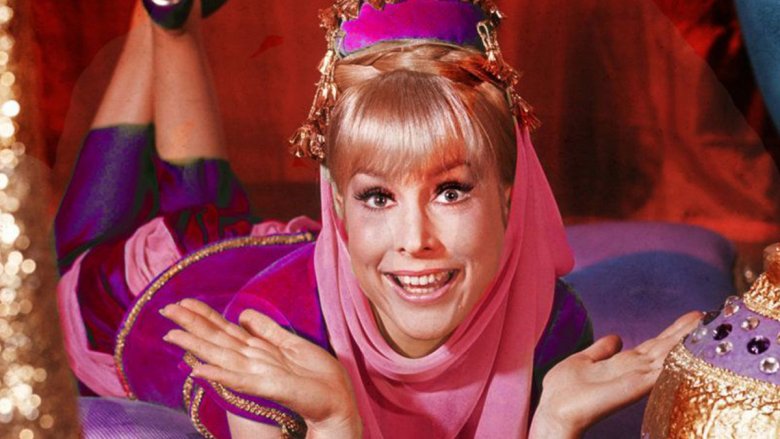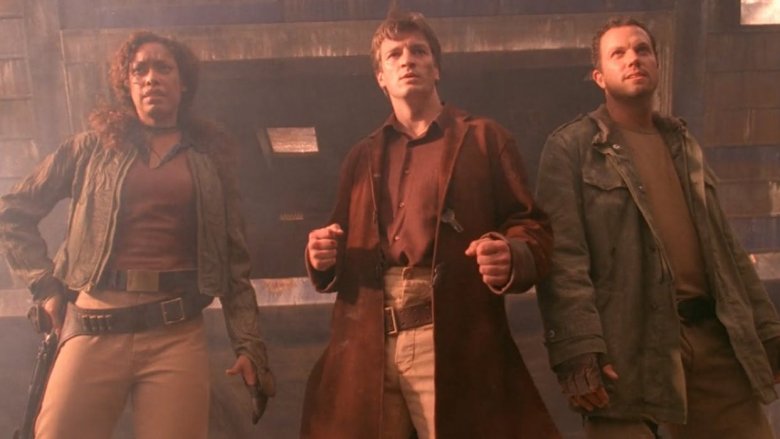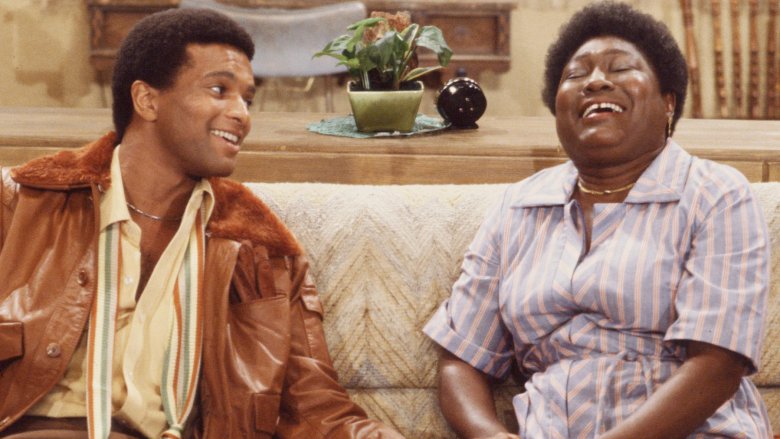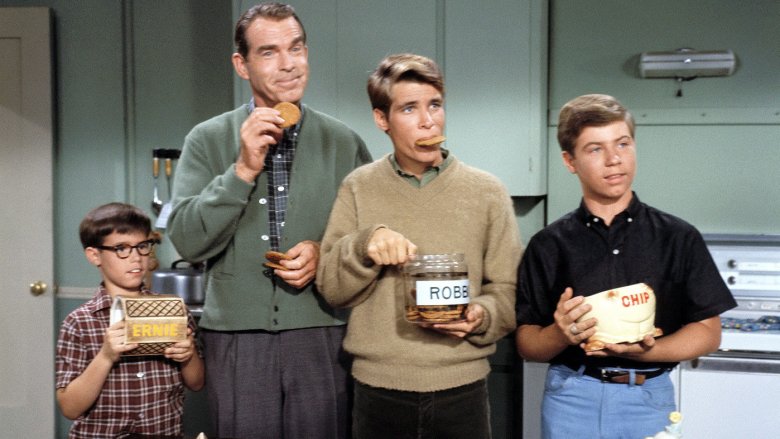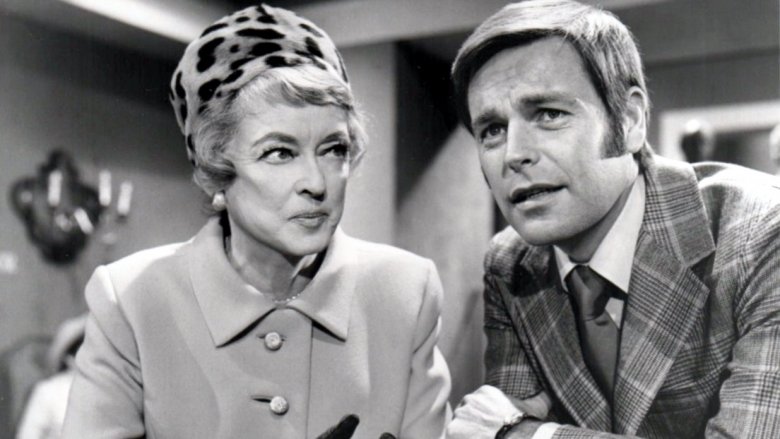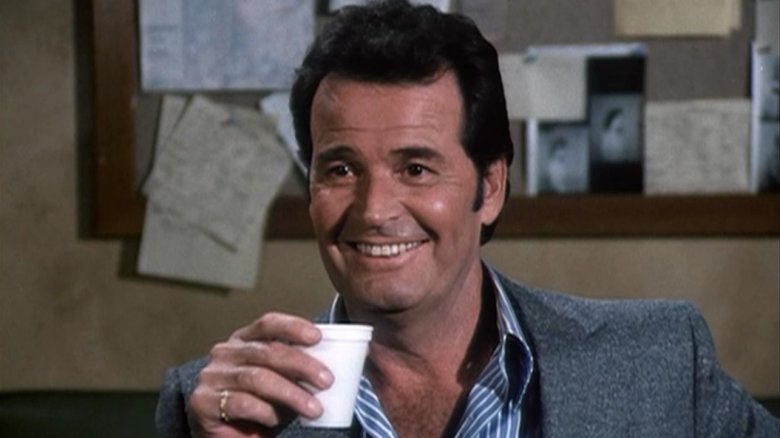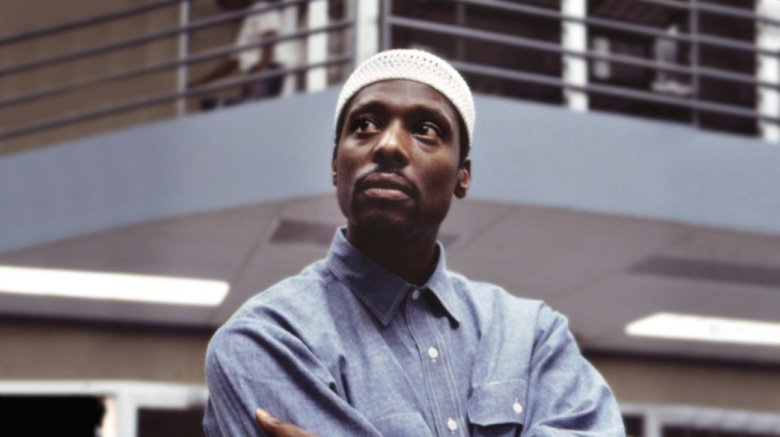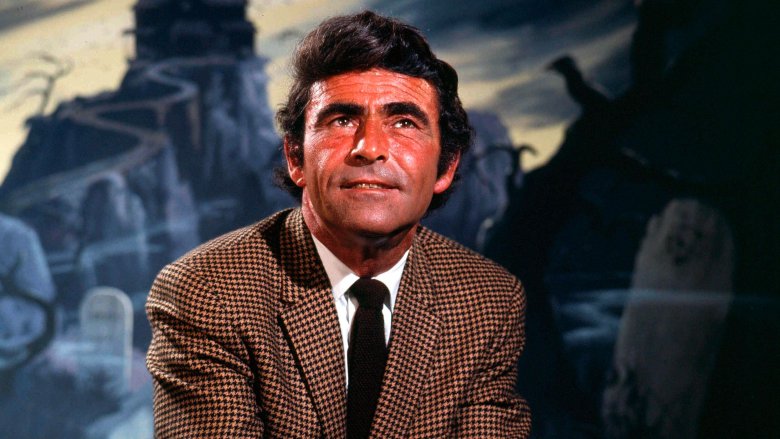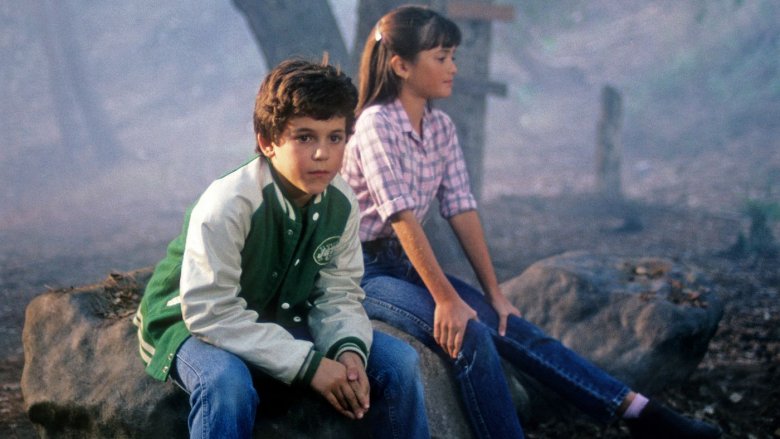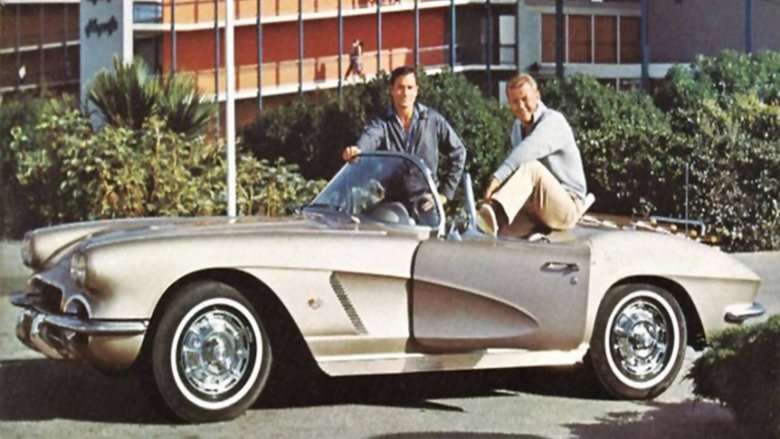Iconic TV Shows That Deserve A Reboot
Reboots have become big business in Hollywood. By the end of 2018, at least 30 once beloved TV series were either in development once more or already re-packaged and airing on the small screen. Rebooting a series can be tricky business, though, and some are less well-received than others.
When Netflix revived '90s family classic Full House as Fuller House in 2016, it was generally panned by critics. Daniel Fienberg of The Hollywood Reporter called the reboot "mawkish, hammy, [and] regressive." Other series revamps have suffered from having nostalgia try to compete with more modern takes on the genre. In reviewing the first few episodes of 2019's The Twilight Zone, The Hollywood Reporter's Tim Goodman compared the series to Black Mirror, saying, "Whatever you think is the worst Black Mirror episode is infinitely better than any minute of all four of these episodes."
This, of course, doesn't mean a successful reboot can't be done. Shows like Star Trek Discovery have proven the right formula can yield positive results. We're willing to bet these iconic TV shows have what it takes.
A modern Mod Squad reboot would hit the target
The Mod Squad ran for five seasons between 1968 and 1972, racking up a total of seven Emmy Award nominations along the way. In their book Encyclopedia of the Sixties: A Decade of Culture and Counterculture, editors James S. Baugess and Abbe Allen Debolt outlined the show's portrayal of 1960s youth and mainstream society's fears surrounding them.
Regarding executive producer Aaron Spelling, Baugess and Debolt said, "With Mod Squad, Spelling not only created a space for 1960s counterculture music, fashion, language, and art, but also introduced positive images of the era's young people, as well as featuring one of television's first female police officers in a leading role." What worked best about the show is that it gave young people on the fringes a real voice, and it showed that those who have been disregarded by the system have worth. It's a sentiment that holds true to this day, so an updated version could be both timely and socially relevant.
A reboot from the Reagan era
From 1982 to 1989, audiences tuned into Family Ties, an all-American family comedy centered on a couple of ex-hippies raising their four kids, one of whom happened to be a young republican. It was a symbol of the political climate of the '80s, which moved from the liberal era of the '60s and '70s to a more conservative time, thanks to Reagan's near decade-long presidency.
The show is widely regarded as one of the most influential series of the time — Variety named it as one of the "20 TV Shows That Shaped Perceptions of America's Families." It took home four Emmy Awards during its run, including three Outstanding Lead Actor in a Comedy Series wins for Michael J. Fox. Beyond its accolades, however, it sought to tackle some serious social issues, including alcoholism and death. Justine Bateman, who played Mallory, told Entertainment Weekly in 2015, "The show was more focused on getting Humanitas Awards than Emmys."
The balance between maintaining familial relationships while simultaneously dealing with political differences is a thing many Americans can relate to today, which makes Family Ties an excellent candidate for revival.
Reboot Jeannie with a wiggle of your nose
In 1964, ABC premiered its series Bewitched, a comedy about a woman who uses her supernatural powers to solve her average, everyday problems and inevitably butts heads with her average, everyday husband. The show was such a success for ABC that in 1965, NBC wanted their own version, hoping to capitalize on the mystical woman/ordinary man dynamic. The result was I Dream of Jeannie, which would make it five seasons before its cancellation in 1970.
While the show itself has received criticism for its portrayal of Jeannie as a "sexist" character, star Barbara Eden is adamant that she wasn't. In an appearance on Oprah's "Where Are They Now?" the actress said, "This was her job, and she was happy in her job. She was a very independent creature, and very strong."
Regardless, Bewitched is scheduled for its own reboot at ABC, so it seems only fitting that I Dream of Jeannie get a shot at capturing lightning in a bottle, so to speak.
Reboot my love, reboot my land...
Firefly only lasted a single season between 2002 and 2003, but its cult legacy has lasted far longer. It was an unlikely pick for Fox — a space western inspired by 1939's Stagecoach, created by Buffy the Vampire Slayer's Joss Whedon (pre-Avengers fame). There were issues from the onset, including the pilot getting switched with the second episode in airing order and promotional material that didn't fit with the series' tone. Alan Tudyk, who played Hoban "Wash" Washburne, told The Hollywood Reporter, "Their way of marketing didn't match the show we were making."
While Whedon got a chance to wrap up the story with the 2005 film Serenity, Firefly has yet to get the second chance on television that it really deserves. Former Fox executive Gail Berman told The Hollywood Reporter, "The look of the show was so unique and so fresh... there wasn't anything like it before or since on TV." Judging by the success of other space-themed series, like Star Trek Discovery, audiences and networks both might finally be ready for a good western space opera.
It's a good time for a Good Times reboot
Throughout the 1970s, spin-offs were big. In 1972, Maude premiered on CBS, a spin-off of the 1971 hit All in the Family. Good Times, which ran from 1974 to 1979 on the network, was a spin-off of Maude, centered on Florida and James Evans and their three kids, a family living in a poor black housing project in Chicago. The series was nominated for three Golden Globes and two Humanitas Prize awards during its run, noted for its down-to-earth depiction of a working-class black family at a time when such representation was particularly rare.
On an episode of PBS's American Masters, entrepreneur Steve Stoute said, "Good Times was bigger than Happy Days at times... J.J. sold more lunchboxes than the Fonz." Shows like Good Times and later The Jeffersons brought real representation to TV during the '70s. Today, series like Black-ish and Atlanta are continuing in their footsteps, but we've yet to see something like Good Times come back.
Three sons, one reboot
My Three Sons ran for 12 seasons between 1960 and 1972, the second longest-running live-action comedy in history. The series, about a widower raising his kids with the help of his father-in-law and uncle, was a departure from family sitcoms of the time, which generally focused on a typical nuclear American family.
Still, for a show about a single father, My Three Sons managed to capture the simplicity of an earlier time. Barry Livingston, who played Ernie Douglas, told CBS News in 2009, "The real world was quite tumultuous and revolution was in the air, and we were still eating Uncle Charley's cookies and having milk."
Sometimes, the best thing a show can do is to serve as an escape from the world outside. My Three Sons was a '50s-style TV series in the '60s, a decade that was all about revolution (its biggest scandal on set had to do with giving the show's married couple a single bed). Its message was one of appreciating the small things in life, especially when big things are happening around you, and it's a message that could stand to be repeated.
It takes a reboot
The premise for 1968's It Takes a Thief is simple enough: a cat burglar gets recruited by the U.S. government to steal for them in exchange for his release from prison. It only ran for three seasons, but it was a lighthearted reprieve from other, more serious crime shows of the decade, like 1966's Mission: Impossible. As Noel Murray wrote for The A.V. Club, "...the quality of the direction by old Hollywood hands like Don Weiss and Jack Arnold hasn't dimmed in the slightest... The show was frivolous, but never artless."
This wouldn't be the first time an It Takes a Thief reboot has been attempted. In 2013, Variety reported that Universal had plans to bring the classic TV series to the big screen, but the project has been at a stand-still ever since, with no theatrical future in sight. Perhaps it's time to bring it back home to TV.
A Rockford reboot could open fresh files
For six seasons between 1974 and 1980, television audiences followed along as private investigator Jim Rockford would answer the call to solve cases the police wouldn't touch. A former prisoner at San Quentin, Rockford was an atypical law hero — the kind of man who had been on the inside (unjustly) and who chose to walk away from a fight as opposed to engage in one. Still, the guy had charm to spare, even if he was living out of a trailer in a Malibu parking lot.
In 2016, Rolling Stone named The Rockford Files as one of the 100 Greatest TV Shows of All Time, and for good reason. It won five Emmy Awards over the course of its run, and lead actor James Garner was nominated five times between 1976 and 1980 for Outstanding Lead Actor in a Drama Series, winning once.
A rebooted P.I. show has already worked once, with 2018's Magnum P.I. But where Thomas Magnum is suave and flashy, Rockford is a more realistic character — he's imperfect and relatable, and exactly the kind of hero we need on screen.
Oz could use a rebooted sentence
In 2017, Esquire called HBO's Oz, which ran on the network from 1997-2003, "the Big Bang of Great TV." Set in a correctional facility unit nicknamed "Emerald City," Oz played out like Shakespeare, but with an even higher degree of backstabbing and murder. It was HBO's first original drama series, and had it not happened, neither would have The Sopranos, Six Feet Under, or True Detective.
The thing about Oz is that it cannot, and will not ever be replicated, at least not in the same way as its initial airing. But the show's stylistic approach to a prison story is something that could. Lee Tergesen, who played Tobias Beecher, told Esquire, "The show gave you a chance to look at people that you initially didn't think you had anything in common with. But once you understand their story, you start to see the similarities and that's what was great about it and I think what needs to be happening more now."
A rebooted gallery for a new night
Rod Serling's name will forever be associated with his 1959-'64 TV series The Twilight Zone, but a lot of people forget that Serling was also responsible for Night Gallery, an anthology series in a similar vein as its predecessor that ran from 1970 to 1973. Where The Twilight Zone focused on science fiction, however, Night Gallery — which would be Serling's final series — ran on horror.
According to Variety, Stephen King referred to the Night Gallery episode "Caterpillar" as "one of the most frightening (shows) ever telecast." The series brought on some heavyweight Hollywood talent, including Vincent Price, Steven Spielberg, and Orson Welles. We've already seen one Serling series make a comeback, with Jordan Peele's Twilight Zone reboot. Deadline reported in December 2018 that Syfy had picked up Night Gallery for its own reboot, which plans to "explore and exploit every modern nightmare imaginable, mining our fears of the dangers of social media."
A wonderful year for a reboot
From 1988 to 1993, Kevin Arnold showed audiences what it was like to grow up. Although the show was set in the late '60s, the adolescent trials and tribulations portrayed on The Wonder Years could have taken place during any era. It brought home four Emmy Awards, along with a slew of other nominations, and it put Fred Savage on the map as a talented child actor.
The Wonder Years ran on nostalgia, and its approach to the typical family comedy was inventive. In 2012, Steve Heisler revisited the series for Vulture and wrote that it was both stylistically ahead of its time and also historically accurate to the '60s. Ultimately, he said, "Yes, the show can be ham-fisted, but it also contains an emotional core that holds up."
The Wonder Years has a formula that can easily be adapted for the modern age — whether that would mean following Kevin's future children or introducing a new millennial protagonist flashing back to their '90s upbringing would be up for debate, but nostalgia never goes away.
Get back on the road with a rebooted route
Route 66 was a 1960-'64 series about a couple of drifters who traveled across the U.S. in a Chevy Corvette convertible. It addressed social issues in a way that would become more common as the decade went on, but as Emily Todd VanDerWerff pointed out for The A.V. Club, Route 66 did it before anyone else. "It's an old canard that what Americans think of as 'the '60s' actually took place from about 1967 through 1969, but from 1960 until 1964, Route 66 was taking these concepts and making them into mass-market television."
Perhaps more interesting is the fact that the show was actually filmed across the country. It was as much a love letter to the United States as it was a commentary on what was happening within it. Today, the majority of television continues to take place in a single location — a home, an office, or a city. But the desire to see how the rest of the country operates is real, and it's worked in reality TV shows like American Pickers. A drama in this kind of setting could be incredibly successful.
Tap back into a rebooted Wire
It's only been a decade since The Wire left the air, so the idea of a reboot may feel a little untouchable to some, especially considering the fact that it's generally regarded as one of — if not the — best series ever made. But its themes are still relevant, and there's plenty more that can be explored.
Michael K. Williams, who played Omar Little, told the BBC in 2018, "It dived so honestly into what was wrong in our society, from the police department to our lawmakers to our school system, and the media. It represented what was happening in our community." The Wire put a spotlight on the city of Baltimore, and perhaps that story has rightfully come to a close.
Rebooting The Wire wouldn't mean redoing the original show. Instead, if the show were to make a comeback, it would need a different setting, and (at least partially) a different cast. But if it were to be approached in the same style, with the same creative team behind it, a continuation of the show would definitely work.
